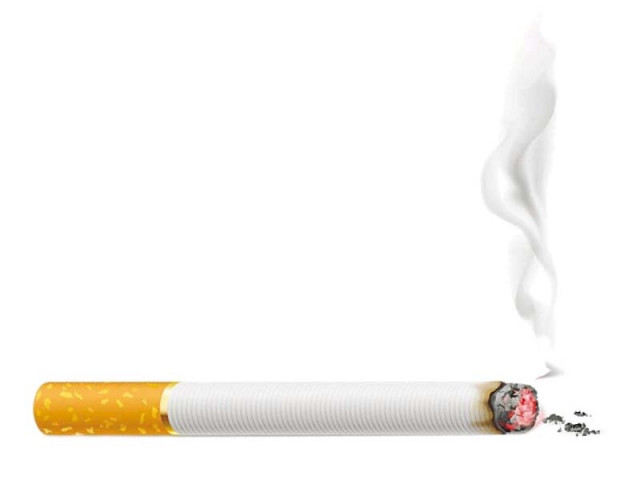Working group recommends increasing duties on cigarette packs
Tax should apply to brands falling in lower slab of packs to discourage youngsters, smokers from lower income groups

The group, which has members from the World Bank, World Health Organisation, the Tobacco Cell at the health ministry, Bloomberg partners and the Federal Bureau of Revenue, has recommended that the finance ministry raises the excise duty on cigarette packs which fall under the lower slab from the current level of Rs33 to Rs44.
Over 20% smokers consume smuggled cigarettes
Duties on cigarette packs are divided into two slabs or categories which are determined by the price of the cigarettes. Packs which cost Rs88 or less fall under the ‘lower slab’, while those which cost more than Rs88 fall under the ‘higher slab’.
Officials say that 80 per cent of all cigarette brands falls under the lower slab. By increasing the tax on these brands would render them out of reach for lower income groups, especially youngsters under-aged smokers.
The group had made similar recommendations last year as well when the duty was enhanced from Rs28.40 to Rs32.98. The duty on higher slabs currently stands at Rs74.10 which will be increased according to the inflation rate.
Apart from increasing the excise duty, the group has also recommended removing all exemptions on tobacco for certain branches of the government.
Pakistan had signed a Framework Convention on Tobacco Control (FCTC) in 2004. Under article 6 of the FCTC, Pakistan has to implement a tax and introduce price policies on tobacco products as part of measures to reduce tobacco consumption.
Contraband seized: Cigarette shops, distributors raided in Abbottabad
Tobacco taxes translate into price increases and are considered among the single-most effective options for reducing tobacco use and increase revenues. Higher tobacco taxes save money by reducing tobacco-related health care costs including Medicaid expenses.
According to a study on tobacco taxation in Pakistan which was jointly conducted by FBR, World Bank, University of Toronto, Johns Hopkins University, University of Illinois at Chicago and Beaconhouse National University, a uniform specific excise tax of Rs44 per pack of 20 cigarettes could reduce the number of smokers in the country by 13.2 per cent, increase tax revenues by Rs39.5 billion, leading to a reduction of 0.65 million premature deaths which are caused by smoking every year.
Moreover, it would also prevent 2.55 million youth from taking up smoking.
Published in The Express Tribune, April 25th, 2017.



















COMMENTS
Comments are moderated and generally will be posted if they are on-topic and not abusive.
For more information, please see our Comments FAQ